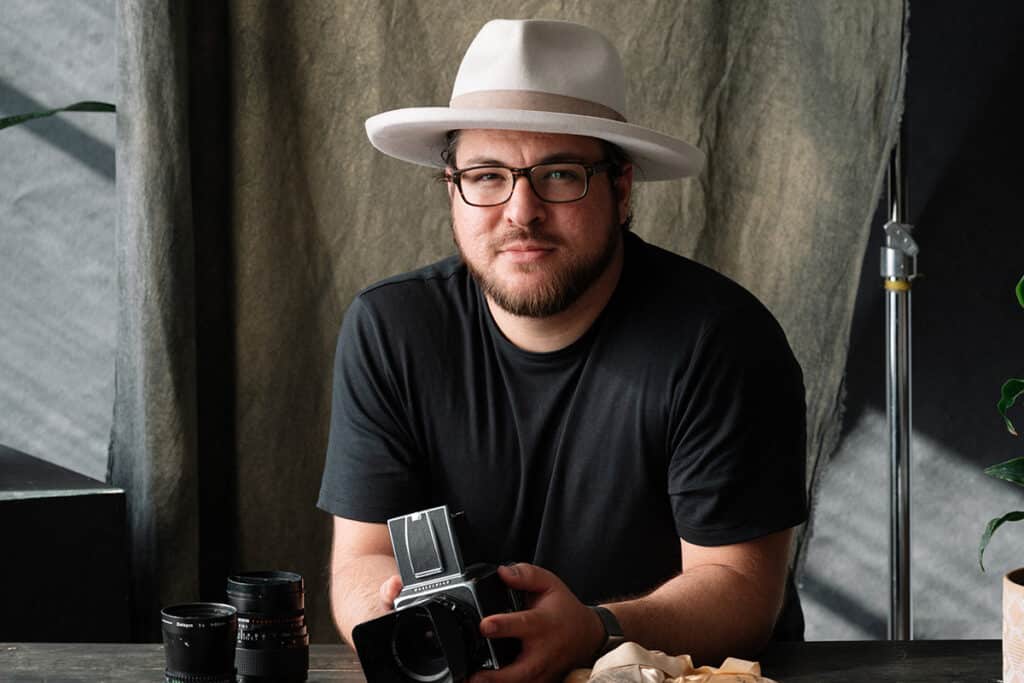Making a difference with music
Four years ago, “If you’d asked me where I’d be teaching, I would have said, ‘Anywhere but middle school,’” says Ashley Simpson, choir director at Mark Twain Middle School in the San Antonio Independent School District.
Simpson — and yes, that is her real name; she’s Susan Ashley Simpson, and “My mom is Susan” — attended Longfellow Middle School in the same district and remembers it as a mixed experience. “I had teachers who really loved what they were doing, but some of the students — and some of them were my friends — made it difficult for the teachers to teach,” she says. “It takes a lot of patience and possibly even more patience.”
Before starting her current, first full-time job as a teacher, Simpson student-taught at the elementary and high school levels. “It wasn’t until I started working with middle schoolers that I realized they’re at an excellent age to motivate and inspire,” she says. “You can light a spark that will stay lit forever.”
A 2012 magna cum laude graduate of the University of Texas at San Antonio, Simpson almost didn’t major in music education there. Intending to major in communications as a more practical route to a possible broadcasting career, she missed the deadlines to take the required courses for a music major. Not sure which way to go, she asked UTSA’s Dr. Gary Mabry if she could audition. “When he heard my voice, he said, ‘You’re a music major,’” says Simpson, who dropped her journalism courses and “never looked back.”
As a student at the Fine Arts magnet school at Jefferson High School, she was in choir, band and jazz band and acted in musical theater. She joined three more choirs at UTSA and sang opera there and with the San Antonio Opera. She sings alto or mezzo-soprano in nearly every genre of music and plays piano, saxophone and drums. In the best tradition of music teachers, she says, “I pick things up easily.” It’s not an exaggeration to say that music is her life. A veteran of the Children’s Chorus of San Antonio, she toured Europe with the group and went on to sing backup for Gloria Gaynor at the Alamodome and to perform in Carnegie Hall with the UTSA Alumni Choir. An only child, she had the benefit of parents who supported her arts activities, as Band Boosters and in other volunteer capacities. “They were so well known in the district that when I got this job, I was asked, ‘Will your parents come, too?’” she says, laughing.
By contrast, she estimates that more than 50 percent of the students in her choir classes are there only because of a “huge schedule mess-up.” It took several weeks to sort out the schedule problems, but Simpson was left with many students who didn’t get the electives they wanted, while losing would-be singers to required classes to help them improve their math or reading skills.
About 90 percent of her students come from disadvantaged backgrounds, and many have “a really rough time at home,” with parents who have become incarcerated, frequent moves, brushes with the juvenile justice system or domestic abuse. At the beginning of her first year of teaching, “I felt out of my depth,” says Simpson, who turned down jobs at more affluent schools for the opportunity of building new music programs at Twain. “The issues we face go beyond the classroom. There were multiple times last year when I didn’t know what to do. Then, 30 seconds later it came to me.” Many of her students have been held back for academic deficiencies and feel uncomfortable being older than their peers. “They don’t want to be here,” she says. “There are outbursts on their part, frustrations on mine.” Although Simpson is not much more than a decade older than her sixth-to-eighth-grade students, there’s a generation gap between what they want to learn and what she needs to teach them. “They come to choir and want to do techno and rap,” she says. “I have to make them understand they need to be exposed to music of other time periods.” During her first year, Simpson figured out strategies “to meet them halfway.”
That meant letting them choose some of the songs, such as a Bruno Mars hit, for their end-of-year pop concert, with a student-led flashmob in the middle. In day-to-day choir practices, Simpson uses games such as using an iPod Shuffle loaded with songs of many genres, awarding points to students who correctly guess whether a tune is pop, country, reggae or Latin. They warm up by stretching and moving to beats and enjoy getting the chance to express their emotions when Simpson asks them to describe how a piece of music makes them feel. “I want them to get involved with music, to have fun with it,” she says. “They need to get engaged with music, to go beyond thinking of it as background noise.” Some come in early or stay late in her choir room. “It’s safe here,” she says. “It feels like a sanctuary. If some of the girls need to cry, they know they can do it here.”
If she could make the choice again, Simpson would still want to teach at Twain: “I feel like this urban district is my calling. These students need the help I have to give them, and understanding how to work with them has made me a softer person.”
A member of Twain’s leadership team, she’s currently working on a master’s degree in educational administration at UTSA. She is interested in moving up to administration someday, using the lessons she has learned to help other teachers. “I see the challenges my administrators face, and I would be happy to take them on someday. No principal goes into a perfect situation.” Seeing progress among her students “is a great motivational tool. I accept challenges with open arms.”
By Paula Allen Photography by Janet Rogers





